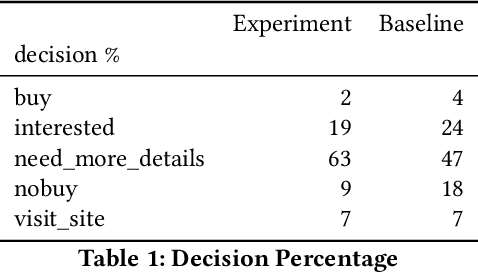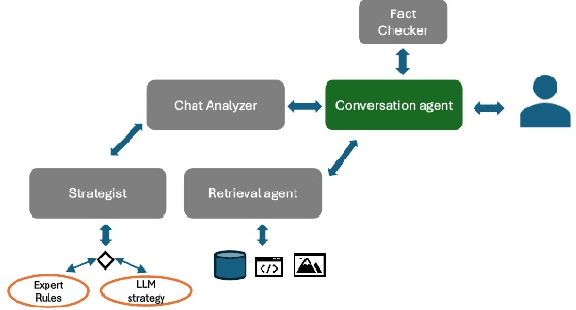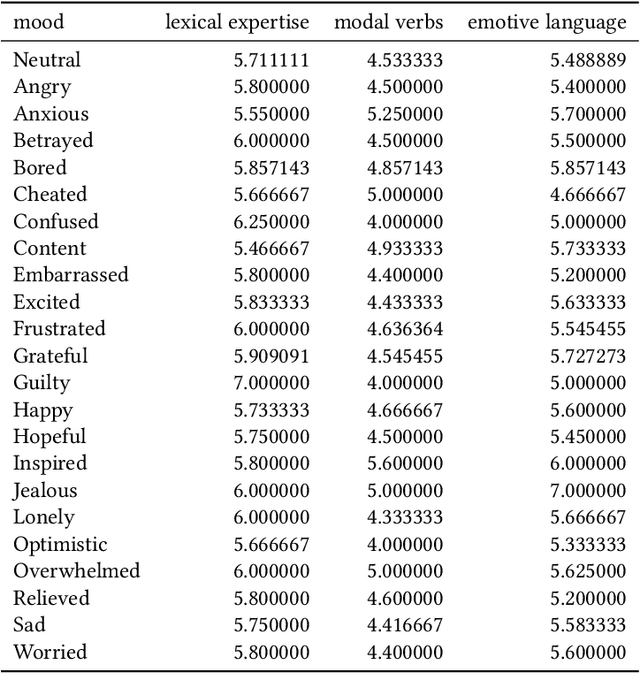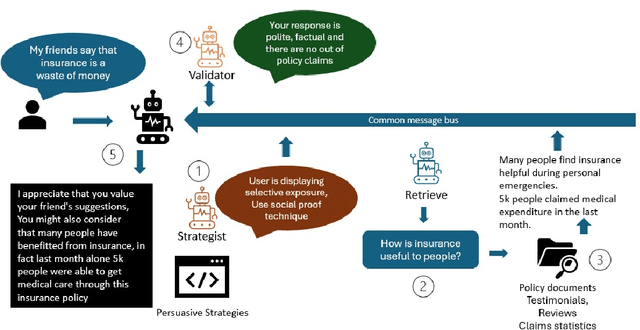Persuasion Games using Large Language Models
Paper and Code
Sep 02, 2024



Large Language Models (LLMs) have emerged as formidable instruments capable of comprehending and producing human-like text. This paper explores the potential of LLMs, to shape user perspectives and subsequently influence their decisions on particular tasks. This capability finds applications in diverse domains such as Investment, Credit cards and Insurance, wherein they assist users in selecting appropriate insurance policies, investment plans, Credit cards, Retail, as well as in Behavioral Change Support Systems (BCSS). We present a sophisticated multi-agent framework wherein a consortium of agents operate in collaborative manner. The primary agent engages directly with user agents through persuasive dialogue, while the auxiliary agents perform tasks such as information retrieval, response analysis, development of persuasion strategies, and validation of facts. Empirical evidence from our experiments demonstrates that this collaborative methodology significantly enhances the persuasive efficacy of the LLM. We continuously analyze the resistance of the user agent to persuasive efforts and counteract it by employing a combination of rule-based and LLM-based resistance-persuasion mapping techniques. We employ simulated personas and generate conversations in insurance, banking, and retail domains to evaluate the proficiency of large language models (LLMs) in recognizing, adjusting to, and influencing various personality types. Concurrently, we examine the resistance mechanisms employed by LLM simulated personas. Persuasion is quantified via measurable surveys before and after interaction, LLM-generated scores on conversation, and user decisions (purchase or non-purchase).
 Add to Chrome
Add to Chrome Add to Firefox
Add to Firefox Add to Edge
Add to Edge